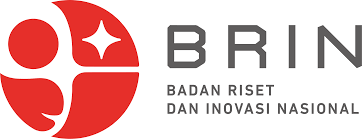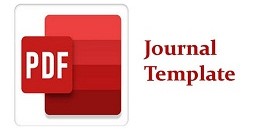Legal Policy and Model of Criminal Responsibility in the Crime of Smuggling by Corporations in Indonesia
DOI:
https://doi.org/10.58355/justices.v3i2.104Keywords:
Criminal Liability, Criminal Law Policy, Corporate SmugglingAbstract
The aim of this research is to determine criminal law policies and models of criminal responsibility for criminal acts of smuggling of goods by corporations in Indonesian criminal legislation. This research is normative legal research, namely research conducted using data in the form of theories, concepts and regulations regarding legal issues regarding criminal law policies to deal with the problem of criminal acts of smuggling goods committed by corporations. The results of the research conclude that criminal liability in criminal acts of smuggling by corporations in Indonesia refers to a legal scheme where corporations are the subject of criminal law and are regulated in Law no. 17 of 2006 concerning Amendments to Law no. 10 of 1995 concerning Customs. The additional models of responsibility that can be applied in smuggling cases include: first, the responsibility of corporate managers as perpetrators and administrators who are subject to criminal responsibility (identification theory) which is based on article 59 of the Criminal Code. Second, the model of corporate responsibility as perpetrators and administrators who are responsible (vicarious liability) is based on articles 82 and 85 paragraph 2 of the Limited Liability Company Law. Third, the model of corporate responsibility as perpetrator and also as responsible (stricht liability) which is based on the logical consequences of applying corporations as subjects of criminal law.
Downloads
References
Achyar, A. (2018). Kedudukan Tindak Pidana Asal (Predicate Crime) Dalam Tindak Pidana Pencucian Uang (Money Laundering) Perpektif Pembaharuan Hukum Pidana. Universitas Pasundan.
Amanah, S., & Farmayanti, N. (2014). Pemberdayaan sosial petani-nelayan, keunikan agroekosistem, dan daya saing. Yayasan Pustaka Obor Indonesia.
Ashar, S. R. (2019). Pemanfaatan Fasilitas Kemudahan Impor Tujuan Ekspor untuk Meningkatkan Ekspor dalam Negeri (Studi pada Kantor Wilayah Direktorat Jenderal Bea Cukai sulawesi Bagian Selatan). Universitas Islam Negeri Alauddin Makassar.
Farouq, M. (2018). Hukum Pajak di Indonesia. Prenada Media.
Hermawan, I. (2019). Metodologi Penelitian Pendidikan (Kualitatif, Kuantitatif dan Mixed Method).
Hidayatul Quran.
Hidayah, R. K. (2016). Implementasi Penghapusan Sanksi Administrasi Atas Pelanggaran Pembayaran Pajak Penghasilan Di Kota Yogyakarta.
Kenedi, J. (2017). Buku Kebijakan Hukum Pidana (Penal Policy) Dalam Sistem Penegakan Hukum Di Indonesia. Pustaka Pelajar.
Purwaka, T. H. (2015). Tinjauan Hukum Laut Terhadap Wilayah Negara Kesatuan Republik Indonesia.
Mimbar Hukum-Fakultas Hukum Universitas Gadjah Mada, 26(3), 355–365.
Rahayu, J. B. (2019). Jagat Biru Rahayu Lingkungan dan Kehiudupan Bermartabat. In Jagat Biru Rahayu Lingkungan dan Kehidupan Bermartabat. UGM PRESS.
Subroto, G. (2019). Pajak & Pendanaan Peradaban Indonesia (Vol. 1). Elex Media Komputindo. Surono, S. (2015). Konsep Dasar Kepabeanan. Tangerang Selatan: Universitas Terbuka.
Wardani, K. A., & Wahyuningsih, S. E. (2017). Kebijakan Formulasi Hukum Pidana Mati Terhadap Pelaku Tindak Pidana Korupsi Di Indonesia. Jurnal Hukum Khaira Ummah, 12(4), 951–958.
Downloads
Published
How to Cite
Issue
Section
License
Copyright (c) 2024 Afan Beny Arseno

This work is licensed under a Creative Commons Attribution 4.0 International License.















